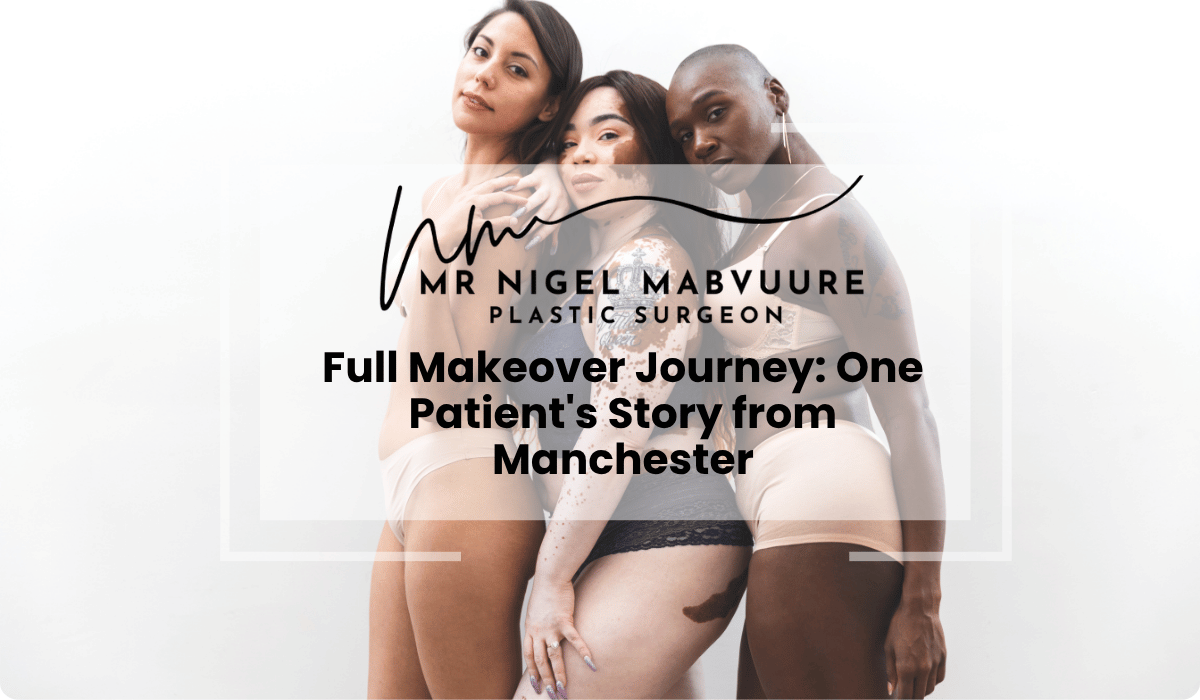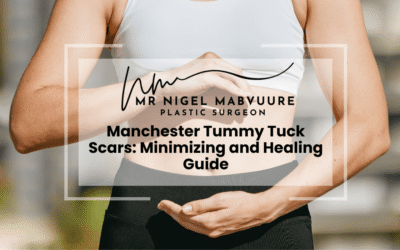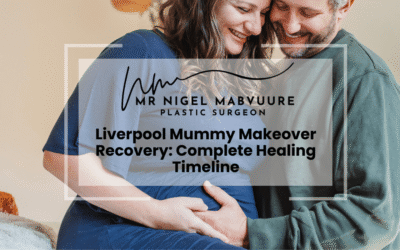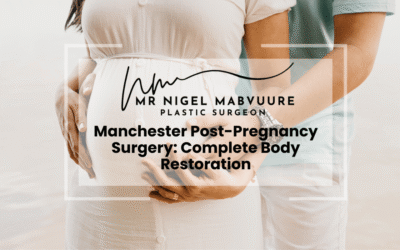My Full Body Transformation Journey
- A complete body transformation is a customised combination of multiple surgical procedures that requires careful planning and staging over 12-18 months.
- Comprehensive consultations with experienced surgeons are essential for creating a realistic surgical plan tailored to your unique anatomy and goals.
- Recovery is a gradual process with final results becoming fully visible around 18 months after beginning the transformation journey.
- The financial investment for a full body makeover in Manchester typically ranges from £25,000-£30,000, with financing options available to make it more accessible.
- The emotional impact of physical transformation often extends beyond appearance, affecting confidence, relationships, and self-perception in profound ways.
- Proper support systems, including aftercare, physiotherapy, and psychological counselling, are crucial components of a successful transformation journey.
Table of Contents
- My Decision to Pursue a Complete Body Transformation in Manchester
- What is a Full Body Makeover? Understanding the Process
- The Consultation: Planning My Plastic Surgery Journey
- Timeline and Procedures: My Step-by-Step Transformation
- Recovery and Results: How Long Does Complete Transformation Take?
- The Financial Investment: Breaking Down Full Makeover Costs
- Life After Surgery: The Emotional Impact of Physical Change
My Decision to Pursue a Complete Body Transformation in Manchester
After years of struggling with my body image following multiple pregnancies and significant weight fluctuations, I finally made the life-changing decision to pursue a complete body transformation in Manchester. Living in the North West, I had researched extensively about plastic surgery options and found that Manchester offered world-class surgical expertise without needing to travel to London.
My journey began after seeing a friend’s remarkable results from her own procedures. The confidence she exuded was infectious, and for the first time, I allowed myself to consider that surgical intervention might be the right path for me. I had spent years trying various diets and exercise regimes, but the loose skin around my abdomen and the volume loss in my breasts were issues that no amount of fitness could address.
The decision wasn’t made lightly. I spent months researching, reading patient stories, and consulting with my GP about the potential health benefits and risks. Manchester’s reputation as a hub for aesthetic medicine gave me confidence that I could find the right surgical team locally. What ultimately convinced me was finding a clinic that offered a holistic approach to transformation rather than just isolated procedures, understanding that a full makeover journey requires comprehensive care and support.
What is a Full Body Makeover? Understanding the Process
A full body makeover, sometimes called a complete transformation, is a customised combination of surgical procedures designed to address multiple areas of concern simultaneously or in strategic stages. Unlike single-focus procedures, a full makeover takes a comprehensive approach to body contouring and rejuvenation, often including a mix of procedures tailored to the individual’s specific goals.
In my case, my surgeon explained that a full makeover typically encompasses several key components. The core procedures often include abdominoplasty (tummy tuck) to address loose abdominal skin and separated muscles, liposuction to remove stubborn fat deposits, and breast surgery (augmentation, lift, or reduction) to restore proportion and youthfulness. Additional procedures might include arm lifts, thigh lifts, Brazilian butt lifts, or facial rejuvenation depending on the patient’s needs.
What makes a full makeover different from isolated procedures is the strategic planning involved. My surgical team in Manchester emphasised that the procedures would be carefully sequenced to optimise results while ensuring safety. Some procedures can be combined in a single surgical session, while others require staging to allow for proper healing. The comprehensive approach also includes pre-surgical optimisation of health, nutrition planning, and a structured recovery programme to support the transformation process.
Understanding that a full body makeover is not simply about aesthetics but about restoring confidence and function was crucial to my decision-making process. The team at All Skin Surgery in Manchester helped me understand that the goal was not perfection but rather creating harmony and balance that would complement my natural features.
The Consultation: Planning My Plastic Surgery Journey
My consultation experience in Manchester was far more comprehensive than I had anticipated. Rather than a quick chat about procedures, it was an in-depth planning session that lasted nearly two hours. The surgeon began by taking a detailed medical history, discussing my lifestyle, and understanding my aesthetic goals. What impressed me most was how he listened to my concerns without judgment, creating a safe space to discuss insecurities I’d harboured for years.
During the physical assessment, the surgeon evaluated my skin quality, muscle tone, fat distribution, and overall proportions. Using advanced imaging technology, he showed me potential outcomes based on my unique anatomy. This visual representation helped set realistic expectations and allowed me to provide specific feedback about my desired results. The surgeon was careful to point out limitations and explain what was achievable given my body type.
Together, we crafted a personalised plastic surgery journey that would unfold over approximately 12 months. The plan included three surgical sessions spaced several months apart to allow for proper healing. My transformation would begin with a combined procedure addressing my abdomen and breasts, followed by secondary procedures for my thighs and arms, and concluding with facial rejuvenation.
The consultation also included meetings with a nutritionist and a physiotherapist who would be part of my care team. They outlined pre-surgical preparation protocols to optimise my health before surgery and recovery strategies to support healing afterwards. The comprehensive approach reassured me that my full makeover transformation would be supported at every stage by specialists who understood the complexities of multiple procedures.
Timeline and Procedures: My Step-by-Step Transformation
My full makeover journey in Manchester followed a carefully structured timeline designed to achieve optimal results while prioritising safety and proper healing. The entire transformation process spanned 14 months from my first surgical procedure to my final follow-up appointment.
The first stage of my transformation began with a combination procedure addressing my most significant concerns. This included an extended abdominoplasty with muscle repair to correct diastasis recti (separated abdominal muscles) from my pregnancies, along with liposuction of my flanks to create a more defined waistline. During the same surgical session, I underwent a breast lift with augmentation to restore volume and position that had been lost after breastfeeding. This initial surgery was the most extensive, requiring an overnight stay at the Manchester clinic.
After four months of recovery and healing, I proceeded with the second stage of procedures. This included a medial thigh lift to address loose skin on my inner thighs and an arm lift (brachioplasty) to eliminate the “batwing” appearance that had developed with age and weight fluctuations. These procedures were performed as day cases, allowing me to return home the same evening with appropriate aftercare support.
The final stage of my surgical journey occurred three months later, focusing on facial rejuvenation. I underwent a mini facelift combined with fat grafting to restore volume in my cheeks and address early jowling. This was complemented by a blepharoplasty (eyelid surgery) to refresh my eye area and reduce the tired appearance that had bothered me for years. Throughout the entire process, my surgical team in Manchester maintained detailed documentation of my progress, creating a comprehensive record of my transformation journey.
Recovery and Results: How Long Does Complete Transformation Take?
The recovery timeline for a complete body transformation varies significantly depending on the procedures performed and individual healing factors. In my experience, the full recovery process was a journey in itself, with distinct phases that required patience and commitment.
The initial recovery from my first surgical session was the most challenging. For the first two weeks following my abdominoplasty and breast surgery, I required assistance with daily activities and followed strict movement restrictions to protect my incisions. Compression garments became my constant companions, worn 23 hours a day for six weeks to minimise swelling and support healing tissues. By week three, I could manage light household activities, though fatigue remained a significant factor. It wasn’t until approximately 8-10 weeks post-surgery that I felt a return to normalcy, though residual swelling continued to resolve for several months.
Recovery from my secondary procedures (thigh and arm lifts) followed a similar pattern but progressed more quickly. I was able to resume most normal activities within 4-6 weeks, though complete healing and final results weren’t apparent until about three months post-surgery. The facial procedures required the least downtime, with most visible swelling and bruising resolving within 2-3 weeks, though subtle refinements in appearance continued for several months.
What surprised me most about the recovery process was how the timeline for visible results differed from the healing timeline. While physical recovery progressed steadily, the aesthetic results evolved more gradually. Initial swelling masked many improvements, and it wasn’t until about six months after each procedure that I could truly appreciate the changes. The complete transformation results weren’t fully realised until approximately 18 months from the start of my journey, as tissues settled and scars matured. My Manchester surgical team emphasised that patience was essential, as the body needs time to adapt to such significant changes.
The Financial Investment: Breaking Down Full Makeover Costs
Understanding the financial aspects of a full body makeover was crucial to my planning process. In Manchester, I found that pricing for comprehensive transformations varies widely based on the specific procedures included, the surgeon’s expertise, and the facility where surgeries are performed. My complete transformation represented a significant investment, with costs totalling approximately £25,000-£30,000 across all procedures.
The largest portion of my budget went toward the first surgical session, which included the abdominoplasty and breast procedures, accounting for roughly £12,000. This higher cost reflected the complexity and length of the surgery, overnight hospital stay, and the extensive aftercare required. My secondary procedures—the thigh and arm lifts—cost approximately £8,000 combined, while the facial rejuvenation procedures totalled about £7,000.
Beyond the surgical fees, there were additional costs to consider. Pre-operative assessments, including blood work and imaging, added approximately £500. Compression garments for recovery cost around £300. Post-operative medications and supplies added another £200-£300. I also factored in the cost of time off work—approximately six weeks total across all recovery periods—and arranged for private help at home during the initial recovery phases, which added about £1,200 to the overall investment.
Many Manchester clinics, including mine, offered financing options that allowed me to spread payments over 24-36 months, making the transformation more accessible. I opted for a combination approach, paying for some procedures outright while financing others. While NHS coverage is not typically available for cosmetic procedures, my surgeon explained that in certain cases where functional impairment exists (such as with very large breasts or significant abdominal muscle separation), partial coverage might be possible, though this wasn’t applicable in my situation.
Life After Surgery: The Emotional Impact of Physical Change
The emotional journey following my full body makeover has been just as significant as the physical transformation. While I had prepared myself for the physical changes, I wasn’t entirely ready for the profound psychological impact that my transformation would have on various aspects of my life.
The most immediate change was in my daily confidence. Simple activities like choosing clothing became joyful rather than stressful experiences. I found myself selecting outfits based on what I liked rather than what would hide perceived flaws. This newfound confidence extended beyond appearance—I became more willing to participate in activities I had previously avoided, from swimming with my children to attending social events where I might be photographed.
Relationships also evolved following my transformation. My partner noticed not just my physical changes but the shift in how I carried myself and engaged with the world. Friends and family commented on my increased energy and willingness to try new things. Some relationships required recalibration as people adjusted to my new appearance and attitude, while others deepened as I became more authentically present without the shield of insecurity.
Perhaps most surprising was the internal shift in how I perceived myself. The mirror finally reflected the person I felt I was inside, creating a harmony between my internal and external selves that I hadn’t experienced in years. This alignment brought an unexpected sense of peace and self-acceptance that transcended the physical changes. My Manchester surgical team had mentioned this possibility during consultations, but experiencing it firsthand was transformative.
While my journey has been overwhelmingly positive, it hasn’t been without challenges. Adjusting to a new body image takes time, and there were moments of doubt during the healing process when results weren’t yet final. I found that connecting with other patients who had undergone similar transformations provided valuable support during these periods. The psychological aftercare offered by my Manchester clinic, including access to counselling services, proved to be an essential component of my complete transformation journey.
Frequently Asked Questions
How much does a full body makeover cost in Manchester?
A complete body transformation in Manchester typically costs between £25,000-£30,000 total. This includes approximately £12,000 for abdominoplasty and breast procedures, £8,000 for thigh and arm lifts, and £7,000 for facial rejuvenation. Additional costs include pre-operative assessments (£500), compression garments (£300), post-operative medications (£200-£300), and potentially home care during recovery (£1,200). Many clinics offer financing options with payments spread over 24-36 months.
How long does it take to recover from a full body makeover?
Recovery from a complete body transformation occurs in stages. Initial recovery from major procedures like abdominoplasty and breast surgery requires 2-3 weeks of limited activity and 8-10 weeks before returning to normal activities. Secondary procedures like thigh and arm lifts typically need 4-6 weeks for recovery. While physical healing progresses steadily, final aesthetic results aren’t fully visible until approximately 18 months after beginning the transformation journey, as tissues settle and scars mature.
Can multiple plastic surgery procedures be done at once?
Yes, multiple procedures can be combined in a single surgical session, but this depends on the specific procedures, overall surgery duration, and patient health factors. In a typical full body makeover, the first session might combine abdominoplasty with breast surgery, while other procedures are staged several months apart to allow for proper healing. Your surgeon will create a strategic plan that optimizes results while prioritizing safety.
What procedures are typically included in a full body makeover?
A full body makeover typically includes a customized combination of: abdominoplasty (tummy tuck) to address loose skin and separated muscles; liposuction to remove stubborn fat deposits; breast surgery (augmentation, lift, or reduction); thigh and arm lifts to address sagging skin; and often facial rejuvenation procedures like facelifts or eyelid surgery. The specific combination is tailored to individual goals and may be performed in strategic stages over 12-18 months.
Is a full body transformation worth it?
For many patients, a full body transformation is worth the investment, offering both physical and emotional benefits. Beyond the visible changes, patients often experience increased confidence, improved body image, greater willingness to participate in activities, and enhanced quality of life. The alignment between internal self-perception and external appearance can create lasting psychological benefits. However, it requires significant financial investment, recovery time, and realistic expectations about results.
How do I prepare for a full body makeover consultation?
To prepare for a consultation, gather your complete medical history, list current medications, prepare specific questions about procedures and recovery, and clearly define your aesthetic goals. Consider bringing reference images that represent your desired outcome. Be prepared for a physical assessment and detailed discussion about your lifestyle, expectations, and concerns. The consultation typically lasts 1-2 hours and may include imaging technology to visualize potential results.
Will the NHS cover any part of a body transformation?
The NHS typically doesn’t cover cosmetic procedures. However, in certain cases where functional impairment exists—such as very large breasts causing back pain or significant abdominal muscle separation (diastasis recti) affecting core function—partial coverage might be possible. Most full body transformations are considered cosmetic and require private funding. Consult with your GP about potential medical justifications if you believe your case might qualify for NHS consideration.




